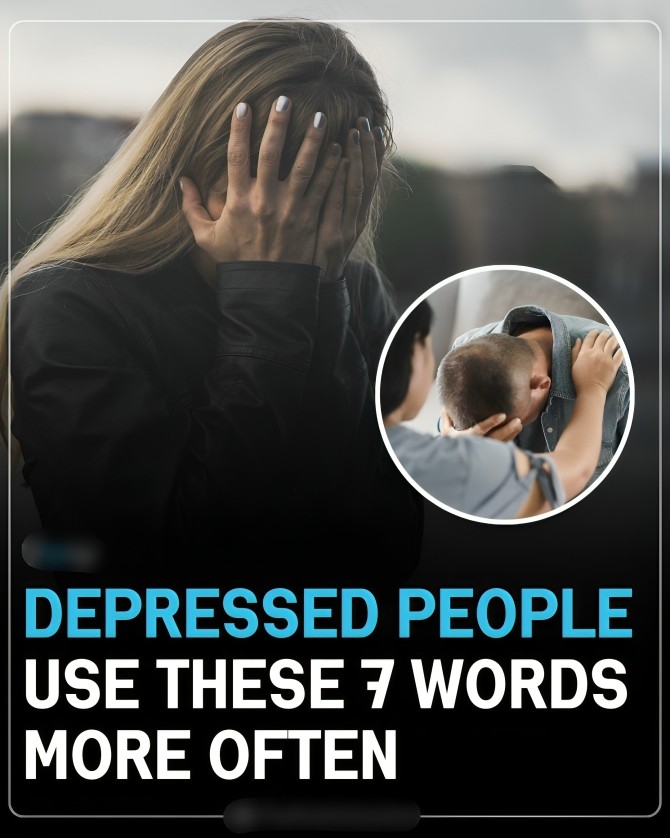Depression is a complex and debilitating mood disorder that significantly impacts a person’s thoughts, feelings, and behaviors. Those struggling with depression often experience a range of symptoms such as low energy, lack of motivation, difficulty focusing, and poor decision-making, which can make even the simplest tasks feel overwhelming. Some common emotional symptoms of depression include:
Persistent feelings of sadness or hopelessness
Loss of interest or enjoyment in activities once loved, accompanied by guilt or feelings of inadequacy
Difficulty concentrating, remembering, or making decisions
Recurring thoughts of suicide or death
Increased irritability or frustration
Here are seven phrases often used by individuals with depression, along with suggestions on how to support someone who may be struggling:
“Always”
People with depression may feel trapped in their negative emotions and use words like “always” to describe their situation, making it seem unchangeable. Encourage them to explore areas in their life where improvement is possible and help them recognize opportunities for change.
“Never”
Similar to “always,” the word “never” is often used by those with depression to describe difficult situations they believe will never end. Support them in adopting a more hopeful perspective and help them understand that change is achievable.

“Nothing”
When individuals with depression say “nothing,” it may reflect their bleak outlook on the future. Gently remind them of their past achievements and strengths while encouraging them to seek professional help to work through their feelings.
“Empty”
A sense of emotional detachment or emptiness is a common symptom of depression. Show empathy and validate their feelings, offering your support as they navigate through this difficult experience.
“Worthless”
Depression often comes with low self-esteem and feelings of inadequacy. Encourage them to consider cognitive-behavioral therapy (CBT) to challenge negative self-perceptions and replace them with more positive and growth-oriented thoughts.
“Sad”
A persistent sense of sadness is a defining feature of depression. Urge them to seek treatment, medication, or therapy to help manage their symptoms and improve their quality of life. Offer emotional support and understanding as they work through their emotions.
“Tired”
Chronic fatigue is one of the most common symptoms of depression. Suggest medical help, regular exercise, a healthy diet, and proper sleep hygiene as ways to combat fatigue and improve overall well-being.
Supporting someone with depression requires patience, understanding, and encouragement. Acknowledging their feelings and helping them take steps toward healing can make a meaningful difference in their journey to recovery.
In conclusion, depression is a deeply complex and challenging condition that affects various aspects of a person’s life, from their emotional well-being to their physical health. It can make even the simplest tasks feel insurmountable, and those struggling with it often express feelings of hopelessness, worthlessness, and isolation. Understanding the language used by individuals experiencing depression, such as terms like “always,” “never,” “nothing,” and “worthless,” can offer valuable insights into their emotional state. By recognizing these patterns, we can better support those who are suffering.
The key to supporting someone with depression lies in offering empathy, understanding, and encouragement. It’s important to validate their feelings and help them see that change is possible. Encouraging them to seek professional help, such as therapy or counseling, can be a crucial step in their recovery. Additionally, addressing physical symptoms like fatigue by promoting healthy lifestyle habits—regular exercise, balanced nutrition, and proper sleep hygiene—can also play a role in alleviating some of the distress caused by depression.

Ultimately, while the road to recovery from depression can be long and difficult, the support of loved ones can make a significant difference. It’s essential to approach those struggling with depression with compassion, as this can help them feel seen, understood, and less alone in their journey. By continuing to raise awareness and reduce stigma, we can create an environment where those battling depression are encouraged to seek the help they need and find the strength to heal.

















